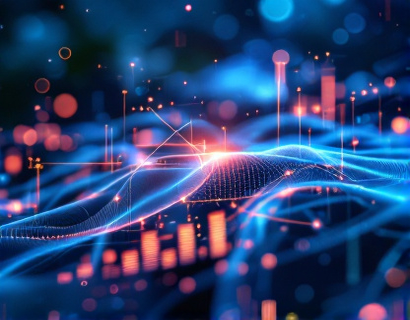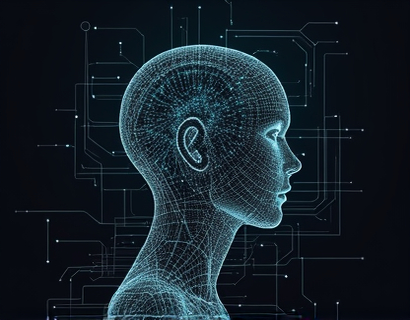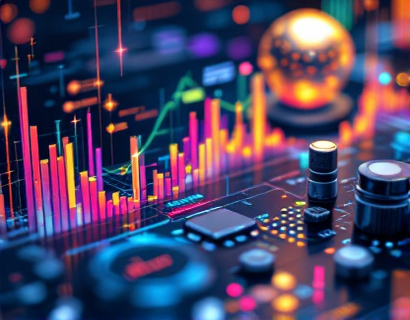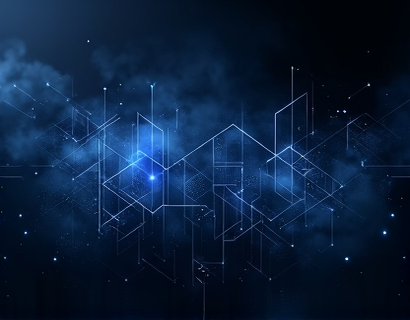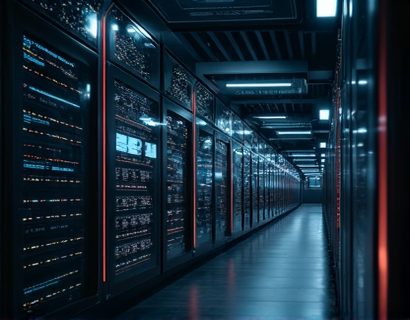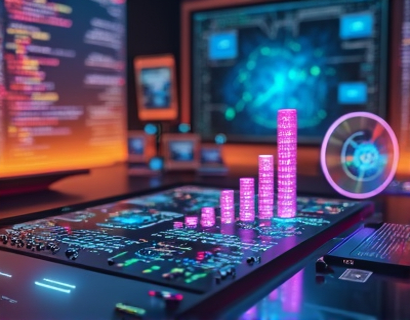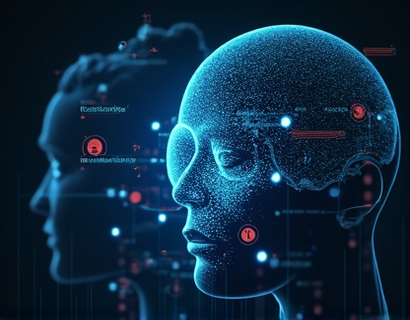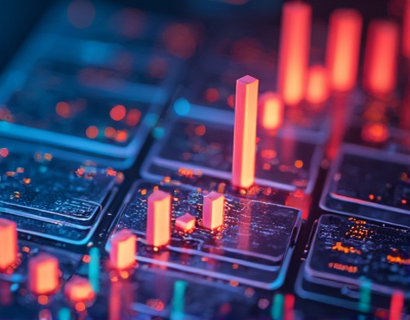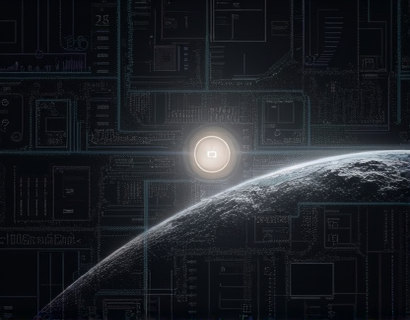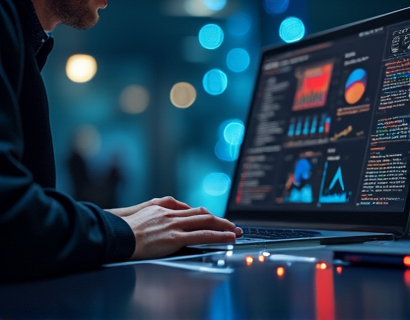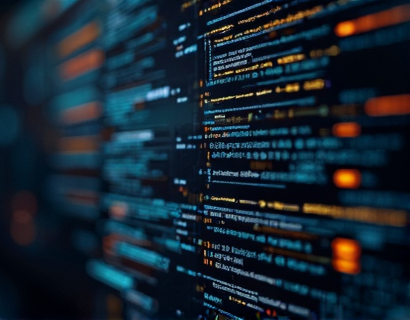AI and Crypto Convergence: Unlocking the Future of Intelligent Blockchain Finance Innovations
The intersection of artificial intelligence (AI) and cryptocurrency is revolutionizing the financial landscape, paving the way for innovative blockchain solutions that promise to transform how we perceive and interact with digital finance. This article delves into the dynamic convergence of these two cutting-edge technologies, offering expert insights, valuable resources, and a vibrant community for tech enthusiasts and professionals eager to explore the future of finance and technology.
The integration of AI with blockchain technology is not just a trend but a fundamental shift in how we approach financial systems. AI's ability to process vast amounts of data, learn from patterns, and make predictions is complemented by blockchain's inherent transparency, security, and decentralization. Together, they are unlocking new possibilities in intelligent finance, from automated trading and risk management to smart contracts and beyond.
Enhancing Trading Strategies with AI
One of the most immediate and impactful applications of AI in the crypto space is in trading strategies. Traditional trading relies heavily on human analysis and decision-making, which can be limited by cognitive biases and the sheer volume of data. AI algorithms, however, can analyze market data in real-time, identifying patterns and trends that humans might miss. This leads to more accurate predictions and automated trading decisions, enhancing the efficiency and profitability of crypto investments.
For instance, machine learning models can be trained on historical price data, volume, and other market indicators to forecast future price movements. These models can adapt and learn from new data, continuously improving their accuracy. Additionally, AI can manage multiple assets and execute complex trading strategies, such as arbitrage and hedging, with precision and speed.
Smart Contracts and AI-Driven Automation
Smart contracts, self-executing contracts with the terms directly written into code, are another area where AI can significantly enhance blockchain functionality. AI can optimize the creation and execution of smart contracts by analyzing vast amounts of data to identify potential risks and optimize terms. This ensures that contracts are not only secure and transparent but also efficient and adaptable to changing conditions.
AI-driven automation can also streamline the process of deploying and managing smart contracts. For example, AI can monitor real-time data and automatically trigger contract executions based on predefined conditions. This reduces the need for intermediaries and speeds up transaction processes, making blockchain-based systems more practical and user-friendly.
Risk Management and Fraud Detection
Risk management and fraud detection are critical components of any financial system, and AI brings unprecedented capabilities to these areas in the crypto space. AI algorithms can analyze transaction patterns, user behavior, and market conditions to identify anomalies and potential fraudulent activities. This proactive approach helps in mitigating risks and protecting users' assets.
Moreover, AI can enhance compliance and regulatory adherence by continuously monitoring transactions for signs of money laundering, terrorist financing, and other illicit activities. By integrating AI with blockchain, financial institutions and regulatory bodies can achieve a higher level of transparency and accountability, fostering trust in the crypto ecosystem.
Decentralized Finance (DeFi) and AI
Decentralized Finance (DeFi) is a rapidly growing sector within the crypto space, offering a range of financial services such as lending, borrowing, and yield farming, all powered by blockchain technology. AI can further enhance DeFi platforms by providing personalized financial advice, optimizing portfolio management, and predicting market trends.
For example, AI-driven platforms can analyze a user's financial data and risk tolerance to recommend tailored investment strategies. AI can also automate the process of lending and borrowing, matching borrowers with lenders based on creditworthiness and other relevant factors. This not only improves the user experience but also increases the efficiency and accessibility of DeFi services.
Challenges and Considerations
While the convergence of AI and blockchain offers immense potential, it also comes with challenges that need to be addressed. One of the primary concerns is the computational power required for AI algorithms, especially those involving deep learning. Blockchain's limited scalability and high transaction fees can pose significant barriers to implementing resource-intensive AI models.
Another challenge is the need for robust data privacy and security measures. AI systems rely on large datasets, and ensuring the confidentiality and integrity of this data is crucial. Blockchain's inherent security features can help, but additional layers of encryption and access control may be necessary to protect sensitive information.
Future Prospects and Innovations
Looking ahead, the integration of AI and blockchain is poised to drive further innovations in the financial sector. One exciting area is the development of AI-powered oracles, which serve as bridges between blockchain and external data sources. These oracles can provide real-time, accurate data to smart contracts, enabling more sophisticated and context-aware applications.
Additionally, the rise of quantum computing presents both opportunities and challenges. While quantum computers have the potential to break traditional cryptographic algorithms, they also offer new ways to enhance AI and blockchain security. Research into quantum-resistant algorithms and AI models is already underway, promising a more secure and efficient future for intelligent finance.
Community and Resources
For those interested in exploring the intersection of AI and blockchain, a vibrant community of tech enthusiasts and professionals is emerging. Online forums, social media groups, and specialized platforms are providing spaces for knowledge sharing, collaboration, and innovation. Engaging with these communities can offer valuable insights, resources, and networking opportunities.
Some key resources to consider include academic papers, research journals, and open-source projects. Platforms like GitHub host numerous AI and blockchain projects, allowing developers and researchers to contribute and learn from each other. Additionally, conferences and meetups focused on blockchain technology and AI are becoming more frequent, offering opportunities to hear from leading experts and thought leaders in the field.
Conclusion
The convergence of AI and blockchain is not just a technological advancement but a transformative shift in how we approach finance and technology. By leveraging the strengths of both domains, we can create more efficient, secure, and intelligent financial systems. As the ecosystem continues to evolve, staying informed and engaged with the community will be crucial for anyone looking to harness the full potential of this exciting intersection.




